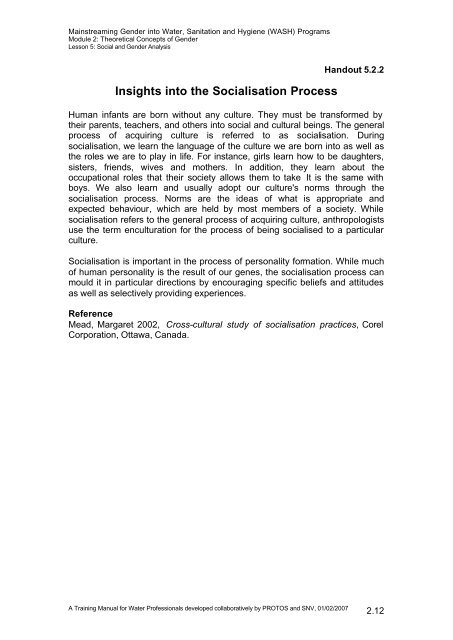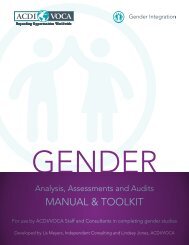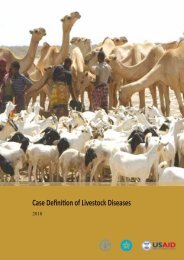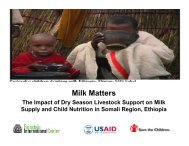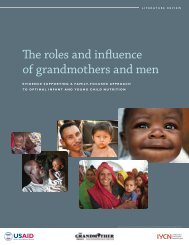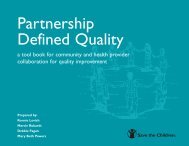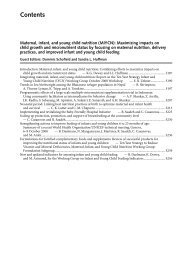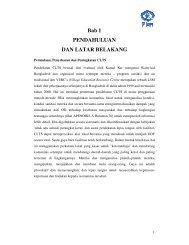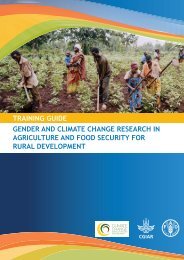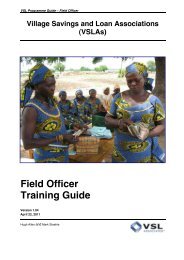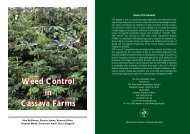Module 2. Theorethical Concepts of Gender - FSN Network Portal
Module 2. Theorethical Concepts of Gender - FSN Network Portal
Module 2. Theorethical Concepts of Gender - FSN Network Portal
You also want an ePaper? Increase the reach of your titles
YUMPU automatically turns print PDFs into web optimized ePapers that Google loves.
Mainstreaming <strong>Gender</strong> into Water, Sanitation and Hygiene (WASH) Programs<br />
<strong>Module</strong> 2: Theoretical <strong>Concepts</strong> <strong>of</strong> <strong>Gender</strong><br />
Lesson 5: Social and <strong>Gender</strong> Analysis<br />
Insights into the Socialisation Process<br />
Handout 5.<strong>2.</strong>2<br />
Human infants are born without any culture. They must be transformed by<br />
their parents, teachers, and others into social and cultural beings. The general<br />
process <strong>of</strong> acquiring culture is referred to as socialisation. During<br />
socialisation, we learn the language <strong>of</strong> the culture we are born into as well as<br />
the roles we are to play in life. For instance, girls learn how to be daughters,<br />
sisters, friends, wives and mothers. In addition, they learn about the<br />
occupational roles that their society allows them to take It is the same with<br />
boys. We also learn and usually adopt our culture's norms through the<br />
socialisation process. Norms are the ideas <strong>of</strong> what is appropriate and<br />
expected behaviour, which are held by most members <strong>of</strong> a society. While<br />
socialisation refers to the general process <strong>of</strong> acquiring culture, anthropologists<br />
use the term enculturation for the process <strong>of</strong> being socialised to a particular<br />
culture.<br />
Socialisation is important in the process <strong>of</strong> personality formation. While much<br />
<strong>of</strong> human personality is the result <strong>of</strong> our genes, the socialisation process can<br />
mould it in particular directions by encouraging specific beliefs and attitudes<br />
as well as selectively providing experiences.<br />
Reference<br />
Mead, Margaret 2002, Cross-cultural study <strong>of</strong> socialisation practices, Corel<br />
Corporation, Ottawa, Canada.<br />
A Training Manual for Water Pr<strong>of</strong>essionals developed collaboratively by PROTOS and SNV, 01/02/2007<br />
<strong>2.</strong>12


